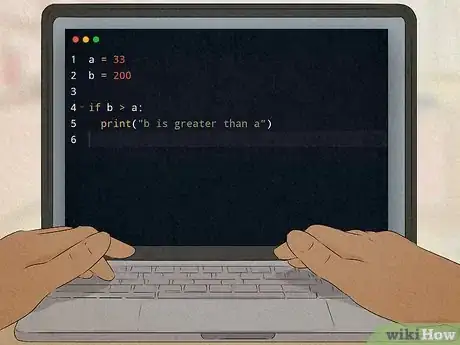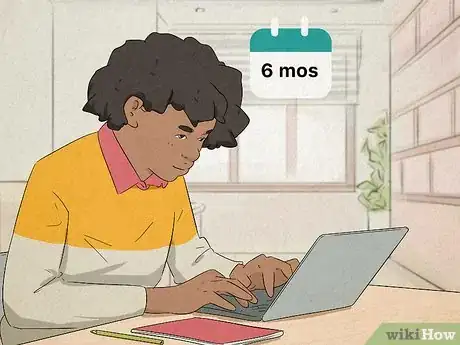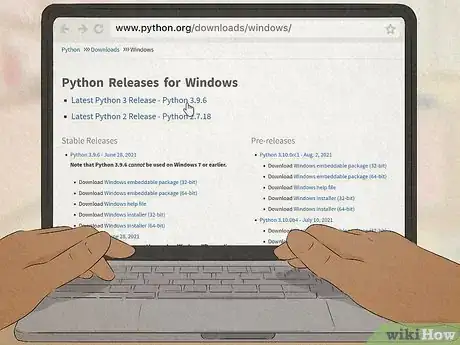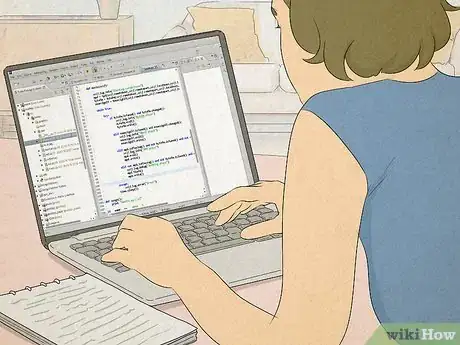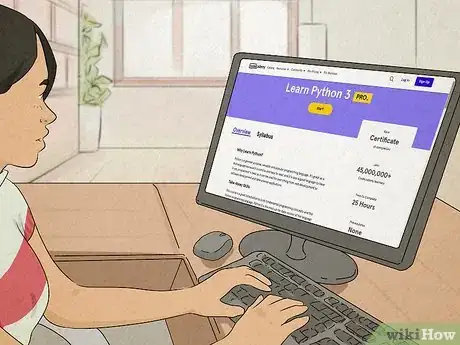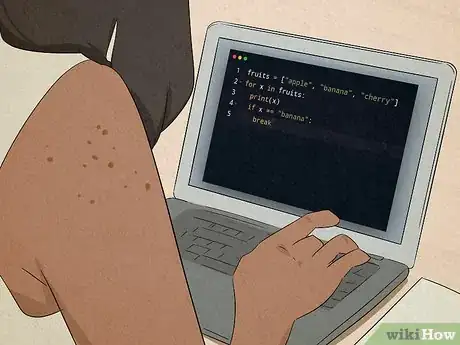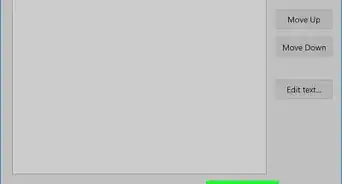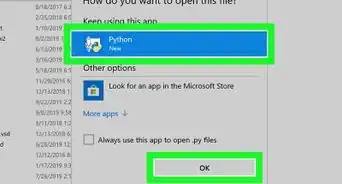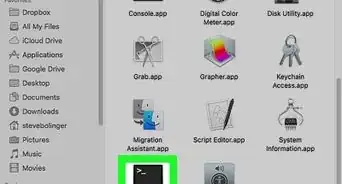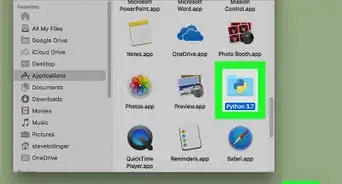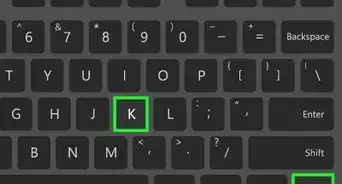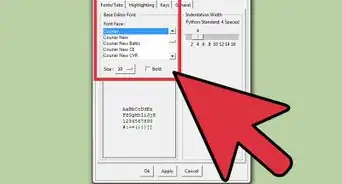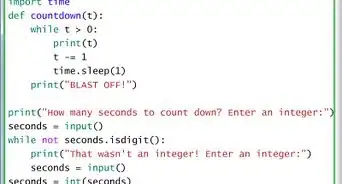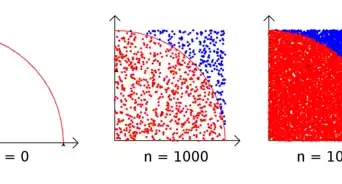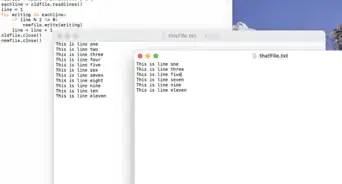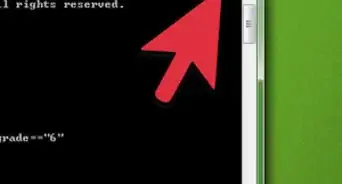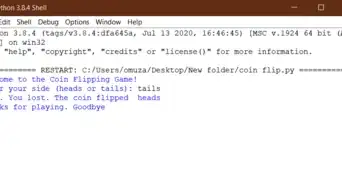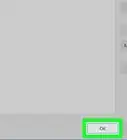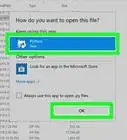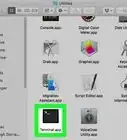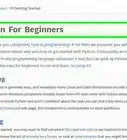This article was co-authored by Luigi Oppido and by wikiHow staff writer, Eric McClure. Luigi Oppido is the Owner and Operator of Pleasure Point Computers in Santa Cruz, California. Luigi has over 25 years of experience in general computer repair, data recovery, virus removal, and upgrades. He is also the host of the Computer Man Show! broadcasted on KSQD covering central California for over two years.
There are 13 references cited in this article, which can be found at the bottom of the page.
This article has been viewed 8,272 times.
If you’re interested in learning how to code, you may be wondering which programming language to choose. The good news is that if you want something popular and easy-to-learn, you’ve got the right idea here with Python. Out of the dozens of programming languages out there, Python is hands-down one of the easiest to learn for people with no programming experience. It’s intuitive, efficient, and it has a wide range of applications. Want more info about Python to see if it’s right for you? Read on to learn everything you’ll need to know.
Steps
Is Python hard to learn?
-
1No, it’s relatively easy to learn compared to other options. After HTML (which is only a markup language), Python is widely considered to be the easiest programming language to learn. This isn’t to say it’s a walk in the park—mastering a programming language takes time, effort, and practice—but Python is definitely one of the easier options.[1]
- This is one of the reasons why Python has become more popular over time, while more complex languages, like Java, have become less popular in recent years. It’s just a lot easier for everyone to compile code in Python, so you’re making a wise choice by learning Python.[2]
-
2Its syntax closely resembles English, so it tends to be intuitive. Python’s syntax, which refers to the order of words in a code, feels very instinctual to a lot of professional coders. In fact, the logic of the inputs and commands reads a lot like English once you understand the basics of the language. It’s also not particularly verbose, which means that it doesn’t take very many lines of code to perform tasks.[3]
- For example, if you wanted to print a phrase like “Hello World!” in Python, you’d write: print('Hello World!'). It would take over 3 lines of text to do the same thing in Java!
What do I need to get started with Python?
-
1Download the Python 3 interpreter on your computer to run code. Go to https://wiki.python.org/moin/BeginnersGuide/Download and download the Python 3 interpreter for Windows, MacOS, or Linux depending on whatever operating system you’re using. Python is what’s known as an interpretable language, so you need this to process the code you write.[7]
- Python 3 is totally free, so there are no costs associated with learning here.
-
2You’ll also need an IDE to write code of your own and practice. IDEs (interactive developer environments) have all of the tools you need to make reading, writing, and saving code easier. There are tons of options out there, and many of them of free. Some of the popular options include:[8]
- IDLE (Online Python Editors). This is a good basic option for new users.
- PyCharm, Sublime, and Atom. These are some of the most popular among pros, but they’re a little tougher to learn.
- Eclipse. Eclipse is a good option if you plan on learning multiple languages, since it runs all of the big ones.
- Emac. This is great if you only want a text editor to focus exclusively on writing code.
How do I start learning Python?
-
1Read through the free training materials on Python’s site. Python’s official site is a great resource if you’re new to programming. Visit https://wiki.python.org/moin/BeginnersGuide/NonProgrammers and start reading through the free books and training materials. It may seem like a lot at first, but you can pick and choose resources here as you like. Just learn the terminology and study the basics for a few weeks.[9]
- There are over 100 free books on this page. Don’t feel obligated to read every single one of them. Pick and choose whatever speaks to you and scan the chapters at your own leisure.
-
2Complete the free tutorials and classes on Python’s site. Once you’ve read through the basics and you understand the terminology, start completing tutorials, classes, coding games, and walkthroughs. Even if it’s just 20-30 minutes a day, you’ll start to pick up the skills you need to write code.[10]
- You can find dozens of interactive tutorials, classes, and practice exercises for free on the same site as the books at https://wiki.python.org/moin/BeginnersGuide/NonProgrammers.
- Roughly 70% of professional coders are at least partially self-taught, so don’t worry that you’re not going to make progress here. It takes time to master a programming language, but you will definitely get better if you stick with it![11]
-
3Practice writing your own code, then practice some more. When it comes to learning any programming language, the best way to learn is by doing. Once you understand the basic mechanics and logic of writing code, practice writing your own code every single day. Over time, you’ll seriously improve your ability to write programs using Python.[12]
- Beginner coding projects that might interest you include: “Hello World,” a dice-rolling simulator, a “guess the number” game, or a simple text-based adventure game.
- Share your code on Python communities, like Stack Overflow, GitHub, and r/LearnPython on Reddit. The folks on these boards will be more than happy to help you troubleshoot, point out ways to improve, and give you feedback on your work.
References
- ↑ https://www.techrepublic.com/article/the-10-easiest-programming-languages-to-learn/
- ↑ https://www.wired.com/story/python-language-more-popular-than-ever/
- ↑ https://www.techrepublic.com/article/why-python-is-so-popular-with-developers-3-reasons-the-language-has-exploded/
- ↑ https://www.usnews.com/education/learn-python-guide
- ↑ https://www.theatlantic.com/technology/archive/2015/09/you-dont-have-to-be-good-at-math-to-learn-to-code/403342/
- ↑ https://www.theatlantic.com/technology/archive/2015/09/you-dont-have-to-be-good-at-math-to-learn-to-code/403342/
- ↑ https://wiki.python.org/moin/BeginnersGuide
- ↑ https://www.geeksforgeeks.org/top-10-python-ide-and-code-editors-in-2020/
- ↑ https://www.python.org/about/gettingstarted/
- ↑ https://realpython.com/python-beginner-tips/
- ↑ https://www.washingtonpost.com/news/the-switch/wp/2016/03/30/lots-of-coders-are-self-taught-according-to-developer-survey
- ↑ https://realpython.com/python-beginner-tips/
- ↑ https://www.usnews.com/education/learn-online-coding-bootcamps
- ↑ https://insights.dice.com/2015/06/11/learning-enough-python-to-land-a-job/
- ↑ https://www.salary.com/research/salary/posting/python-developer-salary
- ↑ https://www.wired.com/story/python-language-more-popular-than-ever/

